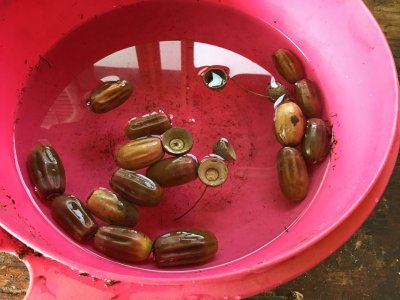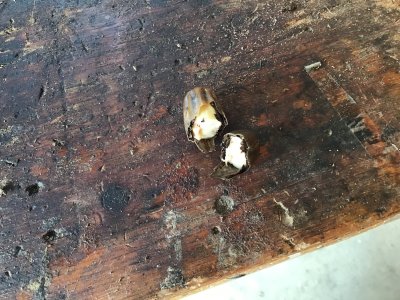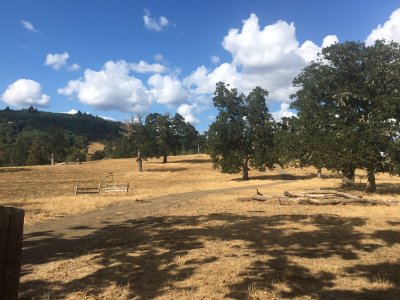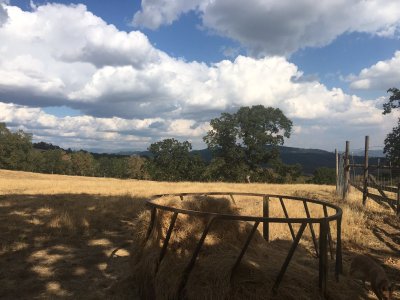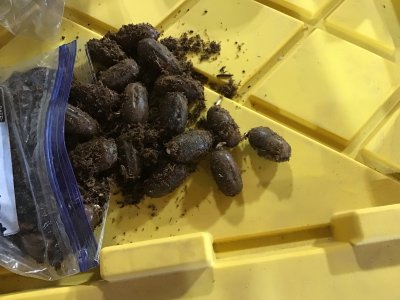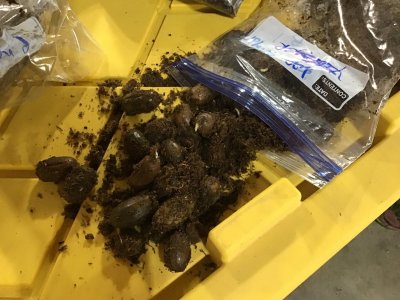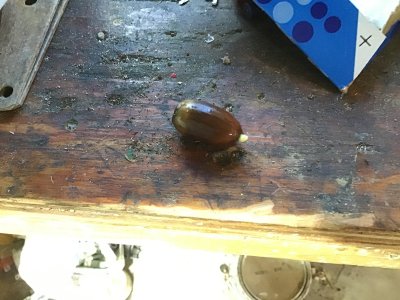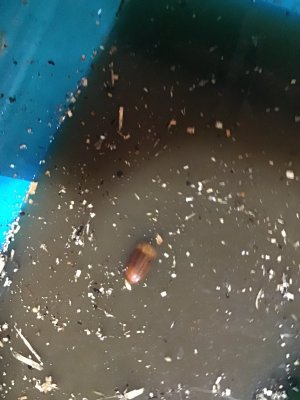You are using an out of date browser. It may not display this or other websites correctly.
You should upgrade or use an alternative browser.
You should upgrade or use an alternative browser.
Float test.
- Thread starter Angus 1895
- Start date
Picking them green likely little or nothing to do with why they floated. Acorn weevils (larva) inside the acorn can consume the "meat" of the acorn creating an air space causing the "float."
Also dehydration (possibly from drying too long or too much heat) can cause shrinkage (and loss of weight with removal of moisture) within the acorn ... a dead air space and promoting floating.
If many or all floated, it's likely they are not viable.
Also dehydration (possibly from drying too long or too much heat) can cause shrinkage (and loss of weight with removal of moisture) within the acorn ... a dead air space and promoting floating.
If many or all floated, it's likely they are not viable.
Angus 1895
5 year old buck +
I must have dried them too much. The meat in them has no larvae, and they taste great!
Can they rehydrate?
Can they rehydrate?
Angus 1895
5 year old buck +
I soaked a bunch over night over a dozen of them now are sinkers.
I put the rest in water today.
I put the rest in water today.
hunts_with_stick
5 year old buck +
They are acorns and they taste great? They aren’t bitter?
Angus 1895
5 year old buck +
These are wonderful.
Just a slight astringency at the end.
Just a slight astringency at the end.
Last edited:
Hoytvectrix
5 year old buck +
With some tree species I stopped doing the float test altogether. It isn't quite fool proof and it's really more of an estimation for seed viability. You don't know until you try to get them to germinate.
Catscratch
5 year old buck +
What species are they? Float testing works well for me, but I usually have an abundance of acorns and don't need to fool with trying to save iffy nuts. Plus I know the species I work with pretty well and know the float test works good enough. If I had only a few and there was no apparent bug damage I'd try to soak them to see if they became viable. Will they need cold stratification? I'm guessing not if they taste ok.
Angus 1895
5 year old buck +
I think some were English oak, and some were Garry oak, and some were hybrid reds. I gathered them over a period of a month in the Pacific Northwest. I was working and didn’t have refrigerator access . Some did fine ( most of them were gathered at the end of the trip.)
I had quite a diversity of them, it’s disappointing but hey, one has to learn some how.
I will have a cooler with peat moss next year.
The ones pictured below are the ones that sank!
I had quite a diversity of them, it’s disappointing but hey, one has to learn some how.
I will have a cooler with peat moss next year.
The ones pictured below are the ones that sank!
Attachments
Angus 1895
5 year old buck +
Native Hunter
5 year old buck +
They are acorns and they taste great? They aren’t bitter?
There are some species of acorns with very low tannins, and humans can eat them without any leaching. One of them is Swamp Chestnut Oak. I tried some the other day. They tasted to me like a chestnut that was still a little on the green side - not bitter, but not sweet.
Angus 1895
5 year old buck +
Angus 1895
5 year old buck +
That’s over my head!
Angus 1895
5 year old buck +
Ok I get it.
Similar threads
- Replies
- 4
- Views
- 209
- Replies
- 22
- Views
- 863

